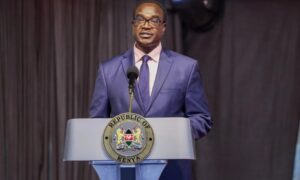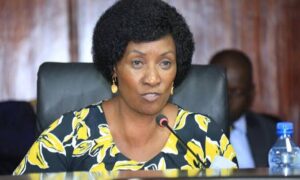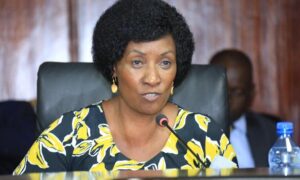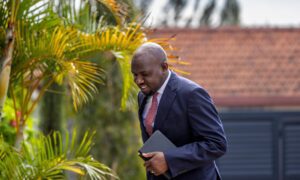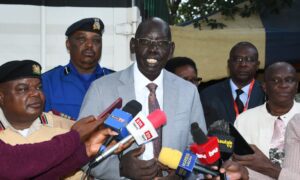Ministry of Education in Turmoil as Butere Girls’ Play Exposes Double Standards
In a dramatic showdown at the 2025 Kenya National Drama and Film Festival, Butere Girls High School made headlines after their controversial play, “Echoes of War,” was barred from performance—only for the students to stage a silent protest that left the nation in shock. The play, which allegedly urged Gen Z to resist government oppression, became the center of a legal and political storm, exposing glaring hypocrisy in the Ministry of Education’s enforcement of rules.
While the ministry cracked down on former Kakamega Senator Cleophas Malala for directing the play, questions arise over why it remained silent when Dennis Itumbi—a political operative—directed a school play in 2024. This double standard has ignited fury among Kenyans, with many accusing the government of selective punishment.
The Rise and Fall of “Echoes of War”
Controversial Script Sparks Backlash
Butere Girls High School, a powerhouse in drama festivals, presented “Echoes of War”—a play written by Cleophas Malala. The script allegedly contained politically charged themes, urging youth to challenge government policies.
- Sub-County Level: Adjudicators demanded edits, calling some messages “offensive.”
- County Level: The play was cleared with modifications.
- Regional Level: The script was altered further, reintroducing contentious themes.
The school’s Board of Management, fearing backlash, withdrew the play, citing Regulation 19.2 of the Drama Festival rules, which prohibits major script changes at higher levels.
Court Orders & Ministry’s U-Turn
Despite the withdrawal, two courts (Kakamega and Kisii) ordered the play to proceed. The Ministry of Education, under pressure, recalled the students and scheduled a performance at Kirobon Girls in Nakuru.
However, chaos erupted when:
- Malala was blocked from training the girls, as he is not a TSC-registered teacher.
- Students refused to perform, citing lack of preparation and Malala’s absence.
- They instead sang the national anthem and walked offstage in protest, leaving officials stunned.
Ministry’s Hypocrisy: Itumbi’s Involvement Ignored
While the ministry condemned Malala’s involvement, Dennis Itumbi—a political strategist—was allowed to direct a play at Kangaru Girls in 2024. Viral clips show Itumbi and comedian Chipukeezy coaching students, raising questions:
- Was Itumbi a TSC-registered teacher? (No evidence suggests he was.)
- Why was he allowed to interact with students? (Violating TSC Circular No. 14/2018.)
- Did the ministry ignore his case while targeting Malala? (Apparent double standards.)
This inconsistency has fueled public outrage, with critics accusing the government of political witch-hunting.
CS Julius Migos Dissolves Butere Girls’ Board
In a swift move, Education CS Julius Migos dissolved Butere Girls’ Board of Management, accusing them of violating TSC regulations by allowing Malala to direct the play.
Yet, no action was taken against Kangaru Girls for Itumbi’s involvement—a clear contradiction that has left Kenyans demanding answers.
Students’ Defiance: A Stand Against Oppression?
The Butere Girls’ silent protest resonated deeply. Their decision to sing the anthem and exit rather than perform under duress was seen as a bold political statement. One student declared:
“The only play we have for Kenya is the national anthem. Echoes of War will find another platform.”
This act of defiance has been praised as a symbol of resistance, with many drawing parallels to past youth movements.
Conclusion: A System in Crisis
The “Echoes of War” saga exposes deep flaws in Kenya’s education system:
- Selective enforcement of rules (Malala vs. Itumbi).
- Political interference in schools.
- Students used as pawns in power struggles.
As Kenyans demand accountability, one thing is clear: the battle between artistic expression and state control is far from over.
Final Word
The Butere Girls drama is more than a festival dispute—it’s a reflection of Kenya’s struggle for free expression. Will the ministry address its hypocrisy, or will students continue to pay the price for political games?











